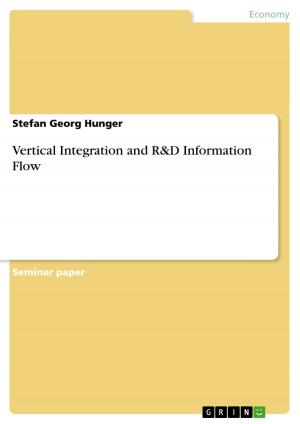Carbon Credits and Global Emissions Trading
A Viable Concept for the Future?
Nonfiction, Science & Nature, Nature, Environment, Environmental Conservation & Protection| Author: | Jens Hillebrand | ISBN: | 9783640169559 |
| Publisher: | GRIN Publishing | Publication: | September 22, 2008 |
| Imprint: | GRIN Publishing | Language: | English |
| Author: | Jens Hillebrand |
| ISBN: | 9783640169559 |
| Publisher: | GRIN Publishing |
| Publication: | September 22, 2008 |
| Imprint: | GRIN Publishing |
| Language: | English |
Seminar paper from the year 2008 in the subject Environmental Sciences, grade: 1,0, Vrije University Brussel (Solvay Business School), course: Advanced Technology, language: English, abstract: The ongoing process of changes in the global climate system is rather undisputed these days, as it is evident from observations of increases in global average air and ocean temperatures, widespread melting of snow and ice as well as rising global sea levels. Moreover, while the exact causes for the currently observed increases in global temperatures are yet to be established, a growing consensus is emerging that at least part of it is human-caused. As a result, various panels and organisations have emerged throughout the world, which are working on strategies how to reverse or at least halt this process. As Kolk & Pinske point out the resulting climate policies across different sectors and locations are diverse. Various companies are trying to restructure their operations in order to reduce waste and to make their processes more energy efficient. A number of governments are enacting policies to replace CO2-intensive energy, released through the burning of coal, oil and gas by more environmentally friendly, so-called 'clean' energy, such as wind, solar, or hydroelectric power. Others are resorting back to nuclear power asserting that the actual risks of this technology are by far not as high as they are perceived to be or as they were some years ago. A further alternative that has recently been implemented by the EU is a 'cap-and-trade system' for energy-intensive industries, which defines strict limits for the absolute amount of emissions. While the responsibility for complying with this regulation rests with the companies in the respective industries, they are free to find ways how to stay within the limits. Compensating for emissions by purchasing carbon credits is one prominent option available to companies in this respect. Purpose of this paper will hence be to analyse the current state of emissions trading development and assess the prospects of a universal worldwide emissions trading scheme.
Seminar paper from the year 2008 in the subject Environmental Sciences, grade: 1,0, Vrije University Brussel (Solvay Business School), course: Advanced Technology, language: English, abstract: The ongoing process of changes in the global climate system is rather undisputed these days, as it is evident from observations of increases in global average air and ocean temperatures, widespread melting of snow and ice as well as rising global sea levels. Moreover, while the exact causes for the currently observed increases in global temperatures are yet to be established, a growing consensus is emerging that at least part of it is human-caused. As a result, various panels and organisations have emerged throughout the world, which are working on strategies how to reverse or at least halt this process. As Kolk & Pinske point out the resulting climate policies across different sectors and locations are diverse. Various companies are trying to restructure their operations in order to reduce waste and to make their processes more energy efficient. A number of governments are enacting policies to replace CO2-intensive energy, released through the burning of coal, oil and gas by more environmentally friendly, so-called 'clean' energy, such as wind, solar, or hydroelectric power. Others are resorting back to nuclear power asserting that the actual risks of this technology are by far not as high as they are perceived to be or as they were some years ago. A further alternative that has recently been implemented by the EU is a 'cap-and-trade system' for energy-intensive industries, which defines strict limits for the absolute amount of emissions. While the responsibility for complying with this regulation rests with the companies in the respective industries, they are free to find ways how to stay within the limits. Compensating for emissions by purchasing carbon credits is one prominent option available to companies in this respect. Purpose of this paper will hence be to analyse the current state of emissions trading development and assess the prospects of a universal worldwide emissions trading scheme.















